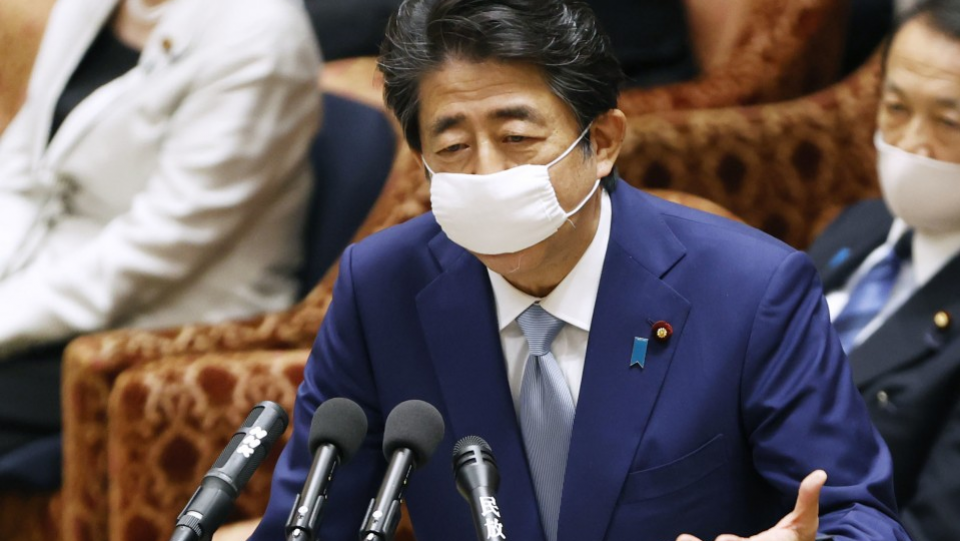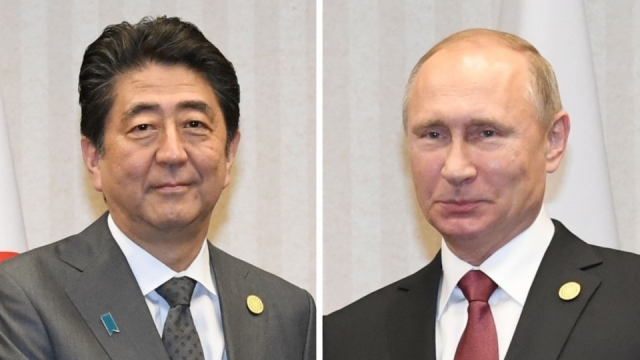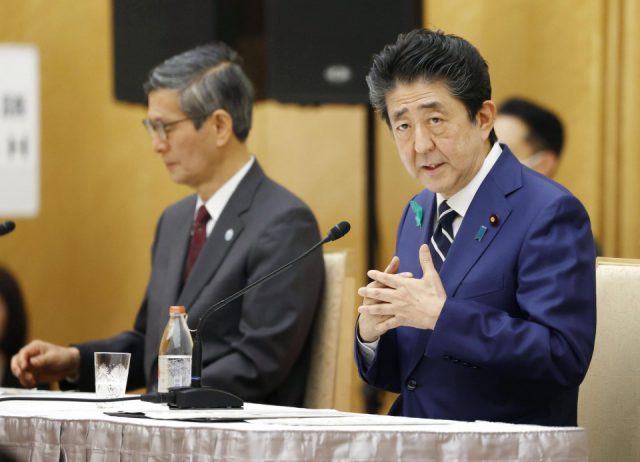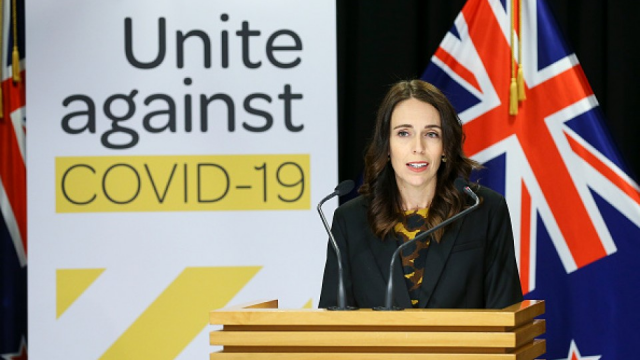Prime Minister Shinzo Abe stressed on Tuesday the difficulty of fighting a coronavirus-triggered economic slowdown, saying that stimulus cannot easily buoy the economy.
Speaking in a parliamentary session, Abe said the current economic situation is “psychologically more challenging than the Great Depression” in the 1930s.
“If we engage in economic activity, it would affect people’s health and life. Unfortunately, we’re not in a situation in which stimulus steps will immediately work,” Abe said during a session of the lower house budget committee.
The first priority is to end the spread of the coronavirus infections before aiming for a strong economic recovery, he said.
“To bring an end (to the epidemic), it’s essential that we have treatment drugs and vaccines. We will strive to develop an effective vaccine as soon as possible and prevail,” he said.
Japan has been placed under a nationwide state of emergency through May 6. People have been asked to refrain from nonessential outings and businesses to suspend operations, although the situation is different from a hard lockdown as seen in some countries and cities overseas.
Abe’s remarks came as the Diet started deliberating on an extra budget for the current fiscal year from April to launch an emergency scheme to distribute 100,000 yen ($930) per person to help ride out the coronavirus crisis.
The 25.69 trillion yen draft budget is a reworked version as Abe decided on a rare revision to secure funding for the cash handout plan pushed by Komeito, the junior coalition partner of the ruling Liberal Democratic Party.
Abe had questioned the effectiveness of an across-the-board cash distribution scheme and the ruling coalition initially agreed to limit recipients to households struggling to cope with income drops.
As the world’s third-largest economy is on the brink of recession, the government has compiled a 108.2 trillion yen economic package, which is equivalent to about 20 percent of gross domestic product.
Related coverage:
Coffee and burgers on order as New Zealand eases coronavirus restrictions
All pachinko parlors in Tokyo now shut to contain virus: Koike
Hard to hold Tokyo Olympics without virus vaccine: medical group chief



